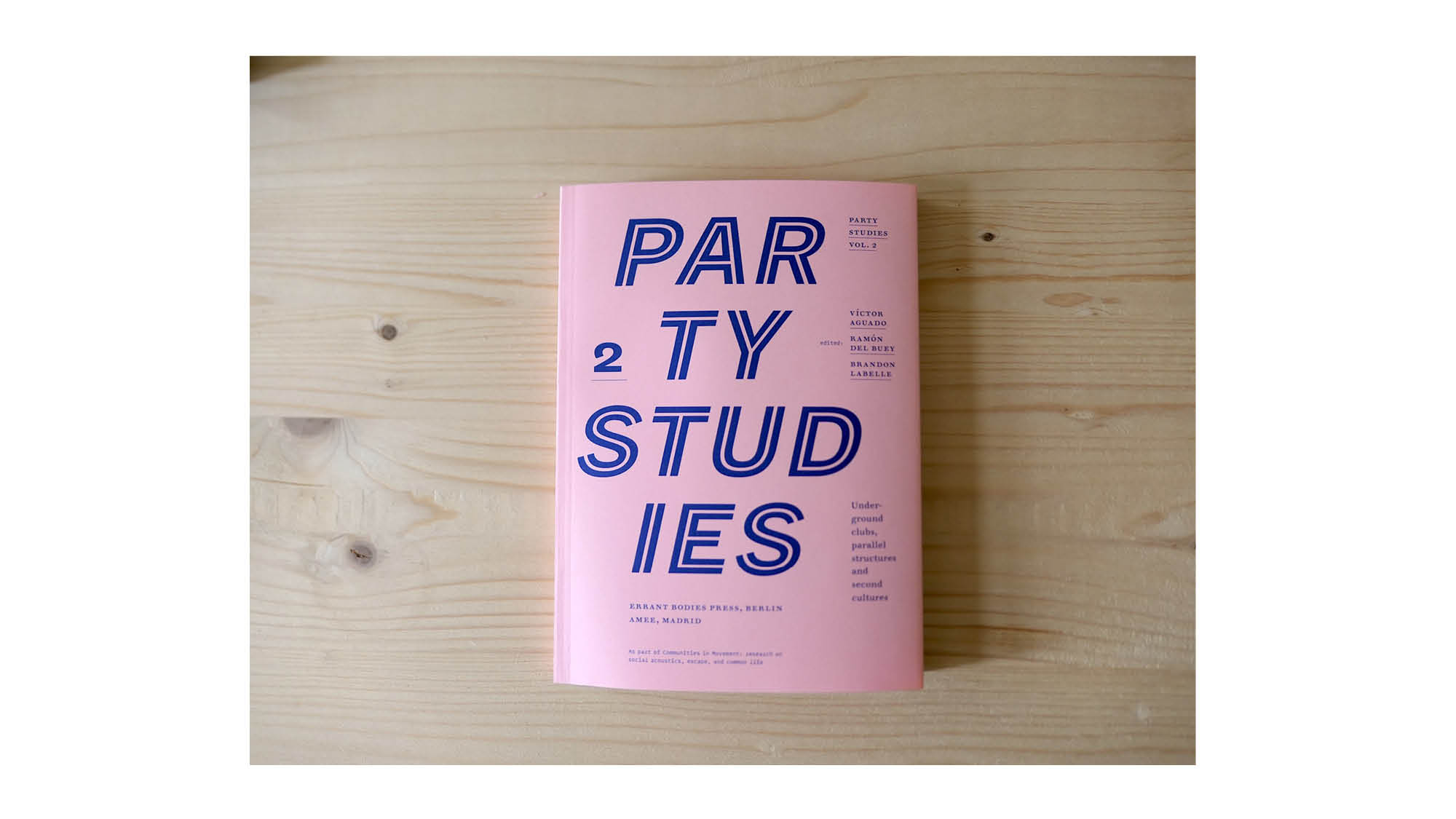
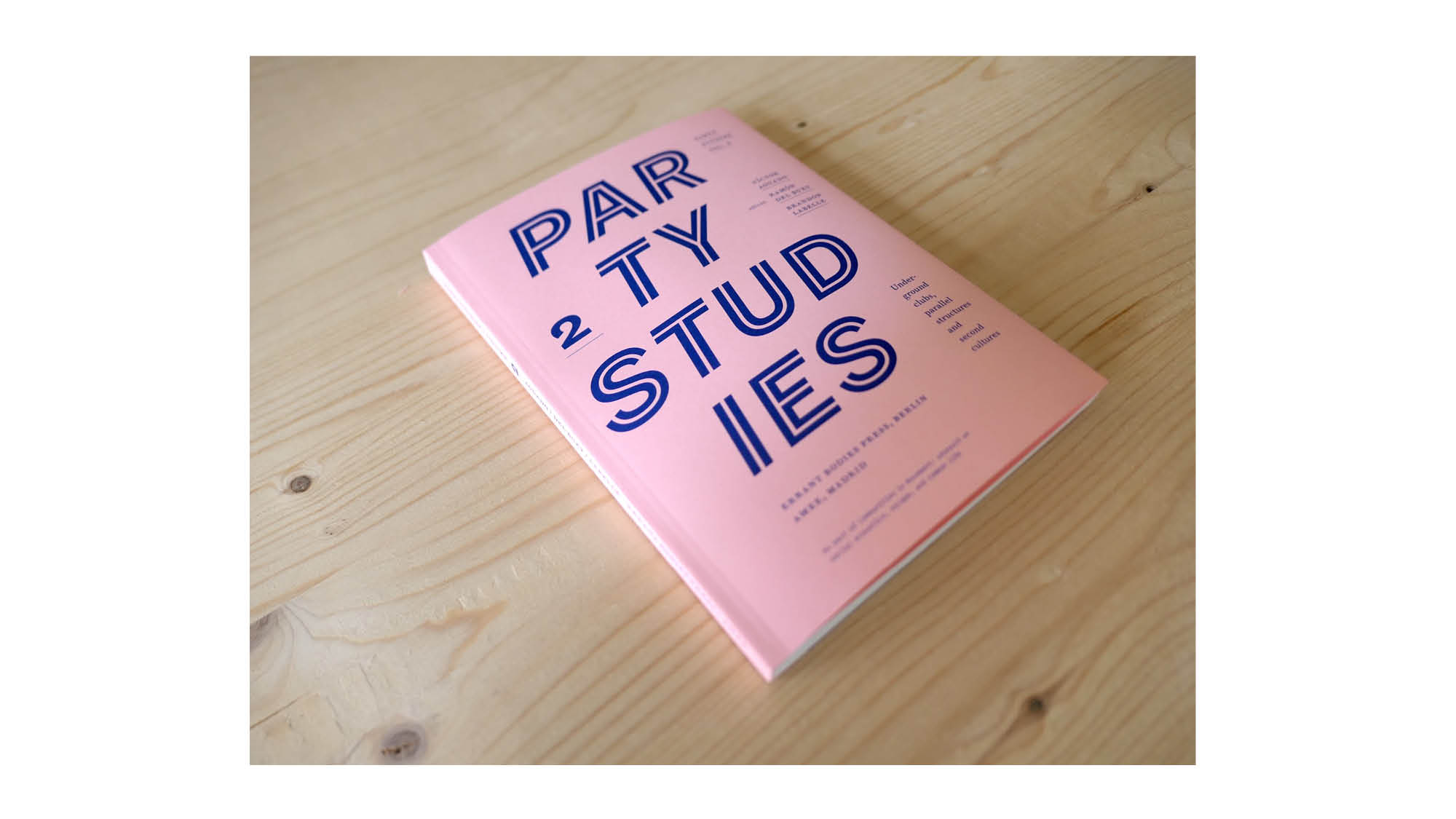
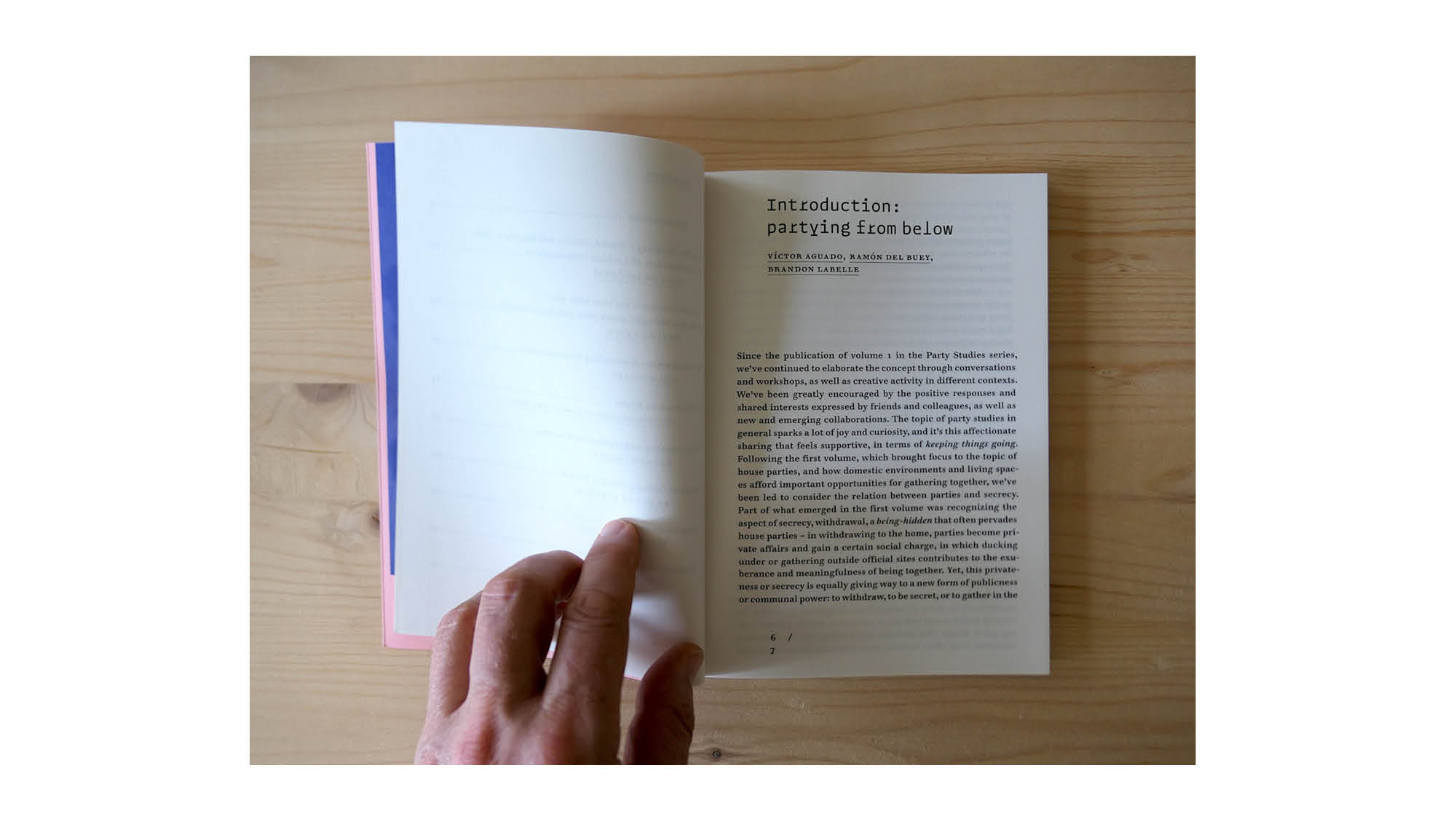
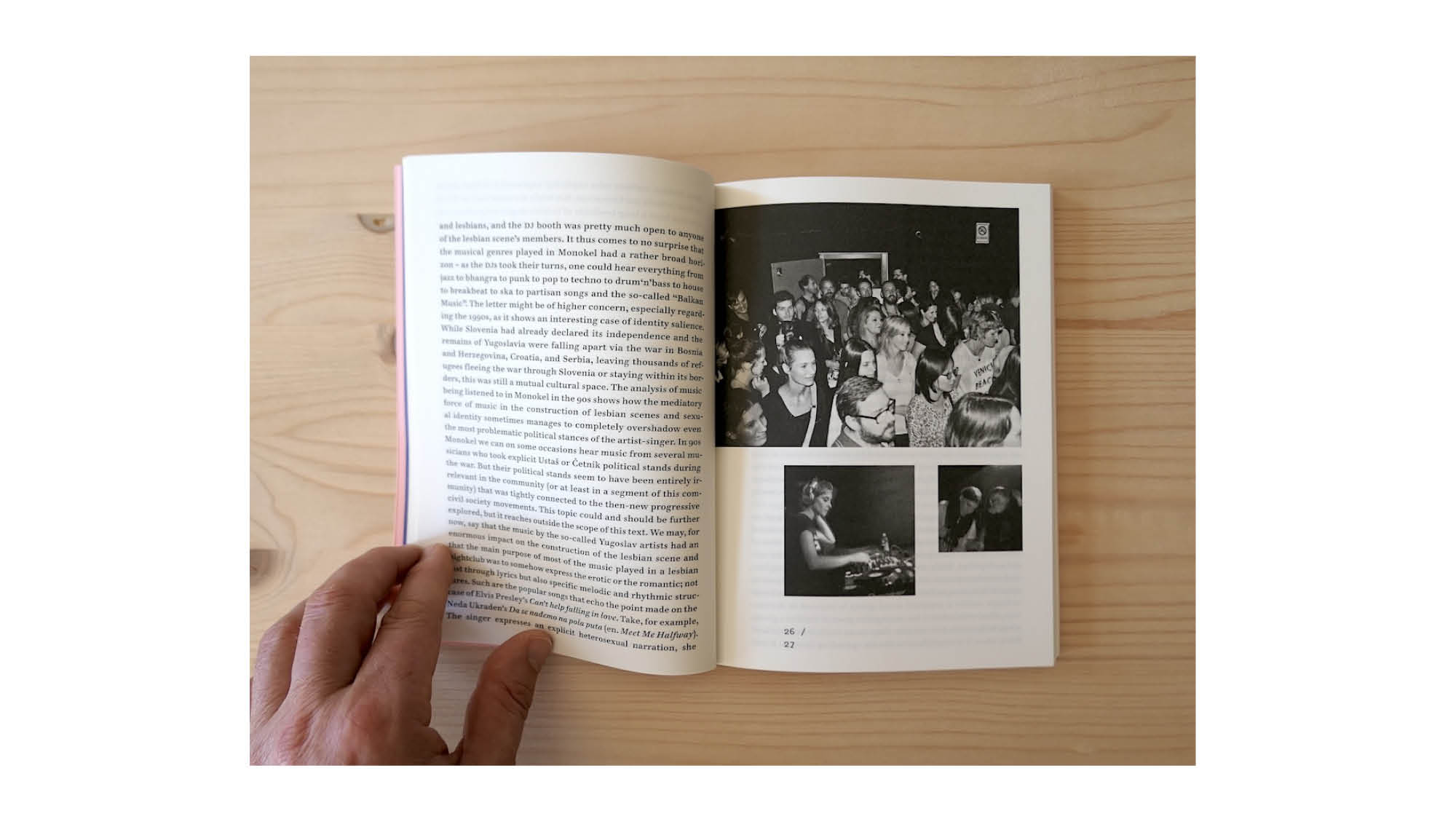
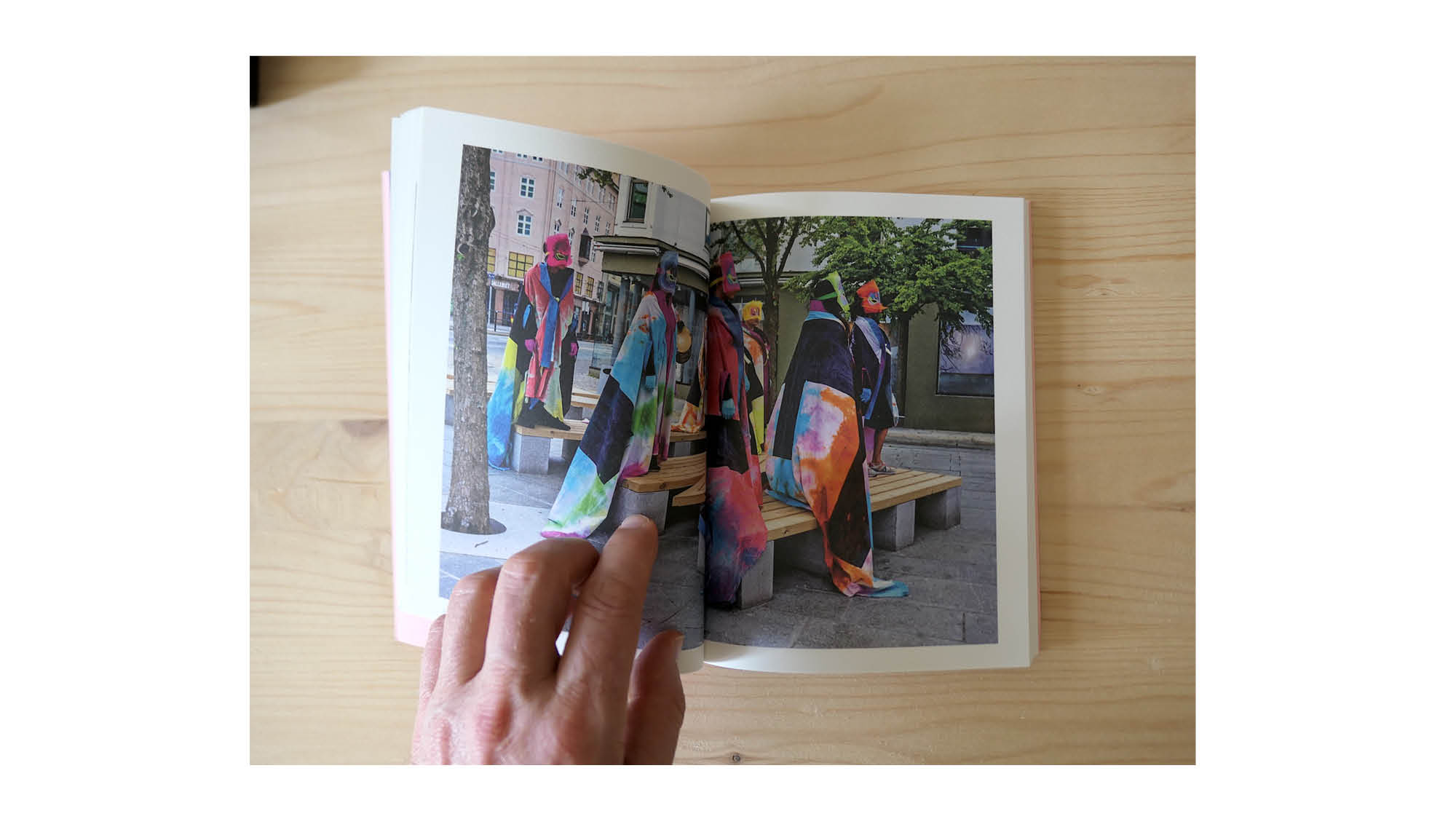
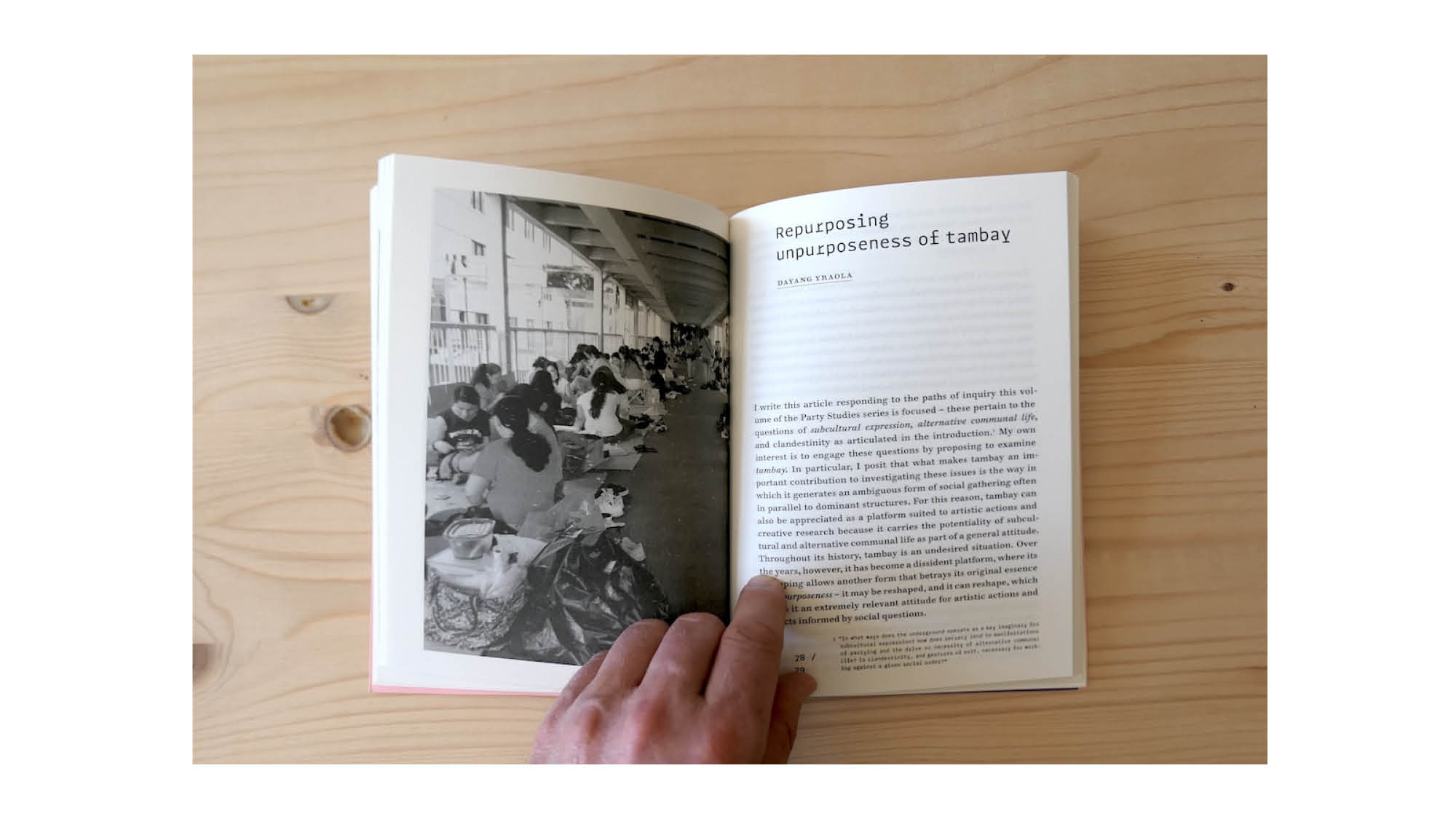
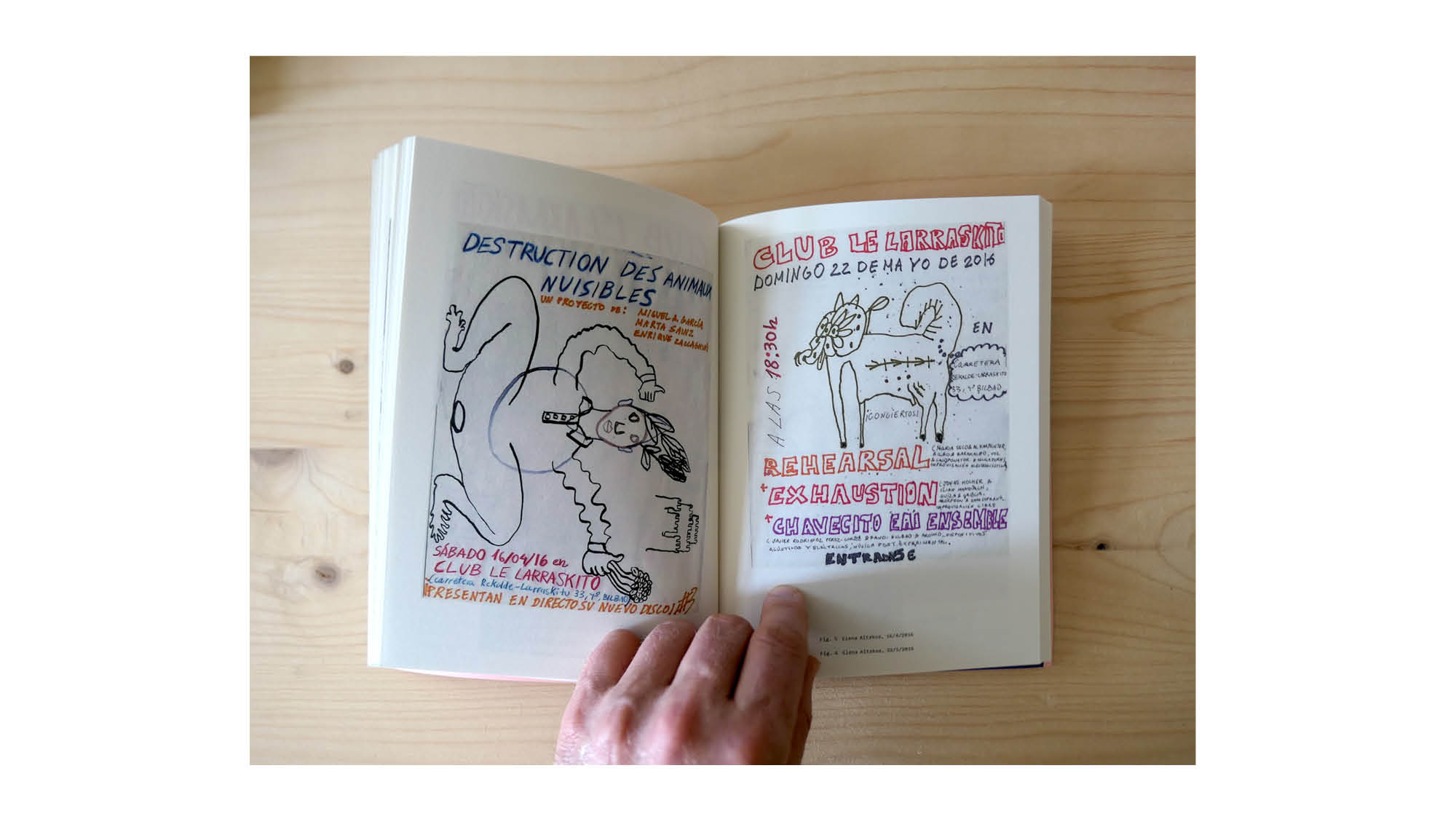
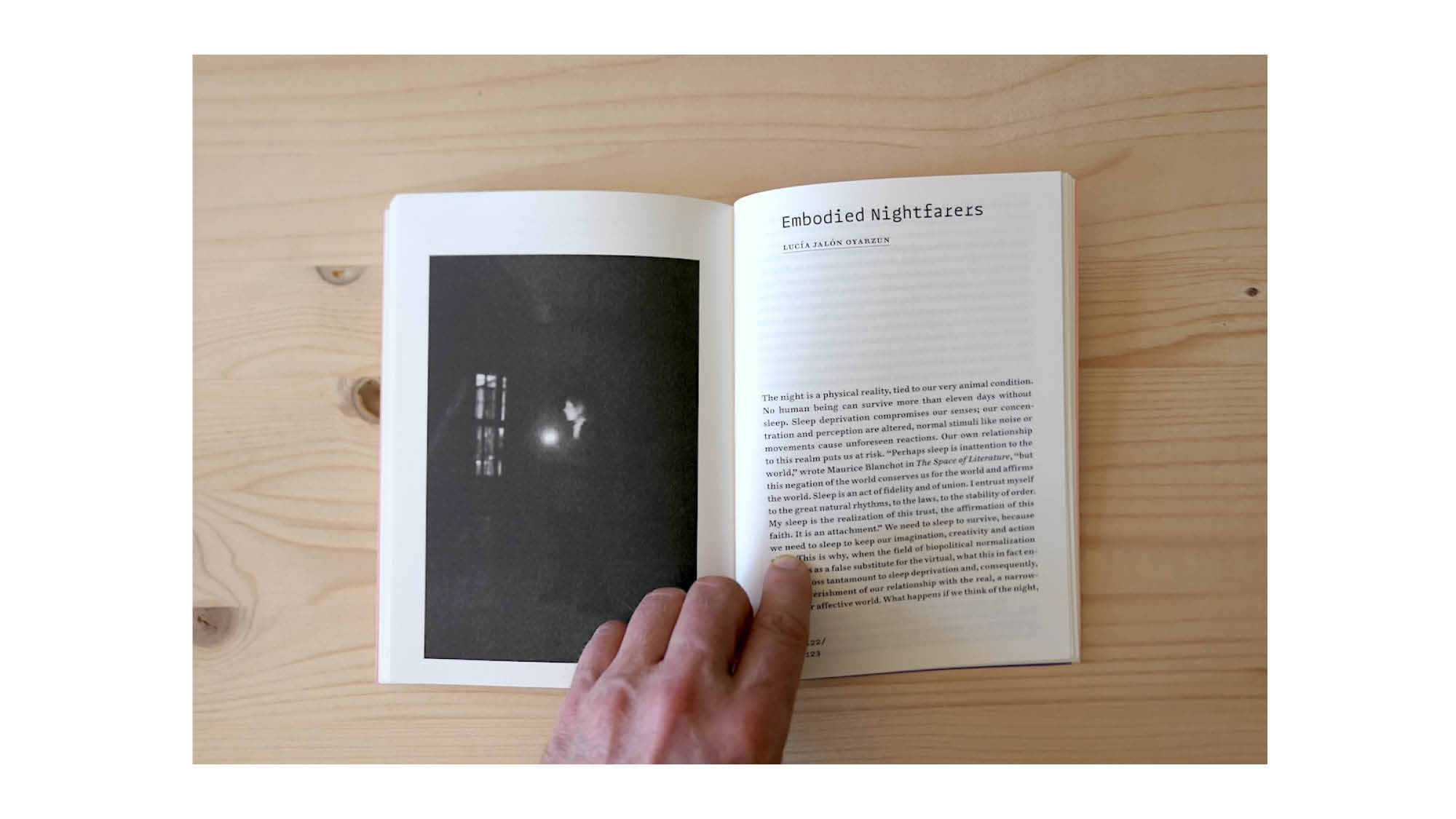
*
ISBN: 978-3-9825585-2-3
144 pages
15 x 21 cm (softcover)
140 pages (color & b/w ill.)
Published April 2024
→ les presses du réel (EU)
→ DAP (US)
Don Alirio is the alterego of Carlos Mario Mojica, a barranquillero living in the city of Medellín, picotero, curator, selector, col- lector and musical researcher with an emphasis on the study and protection of the sounds of Latin America and the African con- tinent. His musical selection pays homage to the neighborhood, to popular dances and to unpretentious sound systems, where devotion to a single element is professed: music.
Mauro Benavidez, Do-it-yourself and piracy sympathizer. Part of my activity involves exploring possibilities in the amateur dimension, hybrid practices and non-specialized methods. This includes pointing out or tuning in to dissenting, distorted or marginal logics from which remixed narratives are proposed. Another constant is collective practice, the articulation of grupal creation processes and experiments.
Nina Dragičević is a poet and a composer with a PhD in Sociology. Dragičević is the author the books Kdo ima druge skrbi (2014), Slavne neznane(2016), Med njima je glasba (2017), Ljubav reče greva (2019), To telo, pokončno (2021), Kako zveni oblast (2022), and Ampak, kdo? (2023). She is the recipient of the 2023 Dr. Ana Mayer Kansky Award, the 2021 Jenko Award, the 2020 Župančič Award, two 2018 Knight of Poetry Awards, and a 2018 Palma Ars Acustica finalist. Dragičević is the 2023 Werner Düttmann Fellow at the Akademie der Künste, Berlin.
Ramón del Buey Cañas is a PhD candidate in the Department of Philosophy at Universidad Autónoma de Madrid, where he organizes seminars on Political Theory, Environmental Humanities and Cultural Criticism. His research is focused on the intersections between music, political economy and ecology. He is a member of the amee boarding team.
Lucía Jalón Oyarzun is an architect and researcher. She grad- uated from the etsam School of Architecture of Madrid where she also defended her PhD “Exception and the rebel body: the political as generator of a minor architecture” (2017). She is cur- rently Head of Research at alice (Atelier de la Conception de l’Espace) at epfl, where she continues her interdisciplinary re- search on minor architectures around issues of secrecy and clandestinity as spatial compositions under capitalism, the effects of coded environments on the body’s spatial capabilities, and maps as instruments of (dis)orientation. Her work, ranging from scientific production to cultural critique, has been published in several journals and publications.
Adam Kraft is a maker and researcher. The tools and refuges he constructs are integrated with and inspired by the transgressive flux of the city: where possibilities intersect and intertwine, where façades crumble and radical collective imaginaries take root and flight.
Brandon LaBelle is an artist, writer and theorist working with sound culture, voice, and questions of agency. He develops and presents artistic projects and performances within a range of international contexts, often working collaboratively and in public. He is the author of Acoustic Justice (2021), The Other Citizen (2020), Sonic Agency (2018), Lexicon of the Mouth (2014), Diary of an Imaginary Egyptian (2012), Acoustic Territories (2010; 2019), and Background Noise (2006; 2015).
Nayara Leite (b. 1989) is a Brazilian artist and writer based in Bergen, Norway. She holds an MFA from the Bergen Art Academy and an MA in Photojournalism & Documentary Photography from the London College of Communication. Nayara works across text, performance, analogue photography, video and installation. Through autobiographical narrative, political news, letters to close friends and archival material, she produces a portrayal of the reality in which the LGBTQ+ community lives in Brazil and in Norway.
Víctor Aguado Machuca is an artist, researcher and curator from Madrid interested in the ways in which opacity is encoded in language and listening. His work has been exhibited at Roulette Intermedium Brooklyn, The Graduate Center of cuny, ArtCenter/South Florida, Instituto Cervantes of Berlin, Matadero Madrid, Medialab-Prado, and other venues. He is an architect and MA in Philosophy, and the Head of the AMEE.
Dairo E. Barriosnuevo Marín is a Colombian painter, whose pictorial work is exclusively dedicated to recreate a space of celebration of popular culture, such as the verbena barranquillera, with all its particular universe, in which he highlights the picó as a totem of sound.
Dayang Yraola (1976, Manila) is an Associate Professor at the Department of Theory, College of Fine Arts, University of the Philippines, as well as Head of the Committee on Linkages, Scholarships and Grants. She served as Curator for the University of the Philippines Fine Arts Gallery (2020–2023) and Archivist and Collections Manager at the Center for Ethnomusicology (2007–2014). As an independent curator, she founded and curated the art project series Project Glocal (2011–2015), Composite Noises (2015–2024), and the archiving/research series Sonic Manila Research (2020–2023). In 2023 she worked as a co-curator for The Listening Biennial, second edition.
Party Studies, vol. 2: underground clubs, parallel structures and second cultures
Edited by Víctor Aguado, Ramón del Buey, Brandon LaBelle
In what ways does the underground operate as a key imaginary for subcultural expression? From basement gatherings to hidden clubs to the passing of messages, how does secrecy lend to manifestations of partying and the drive or necessity of alternative communal life? Is clandestinity, and gestures of exit, necessary for working against a given social order?
Pursuing these lines of inquiry, Party Studies vol. 2 comprises essays, documentation, and poetic notes on secrecy as a key axis around which experimental and non-normative modes of being-in-common take place. Continuing from vol. 1 on the topics of home gatherings and house parties, the second volume elaborates understandings of the party by considering the hidden, the invisible, and the underground as material and imaginary forces, where partying is not only festive and excessive, but manifests in forms of social and political organizing, cultural and subcultural conversation, the maintenance of safe spaces and the building of parallel structures against established institutional forms. As such, the party is underscored as the collective enactments and configurations often made in support of ontological invention and which gain traction by way of heterotopian and interstitial occupations.
Don Alirio, a barranquillero living in the city of Medellín, produced a special mix, called Una fiesta eterna, to accompany Party Studies, vol. 2.
part 1:
*